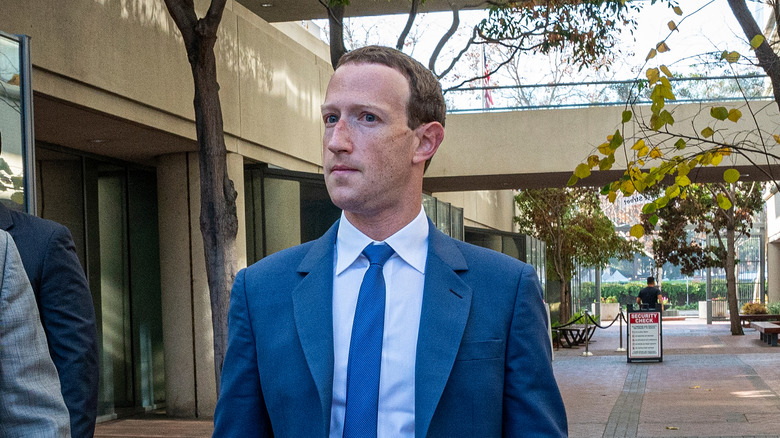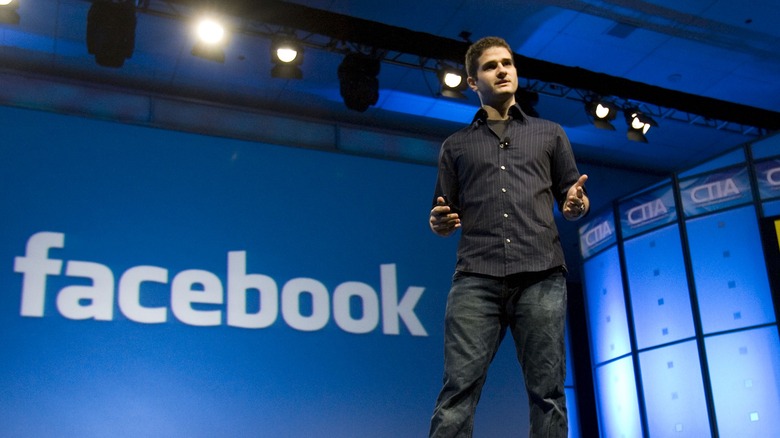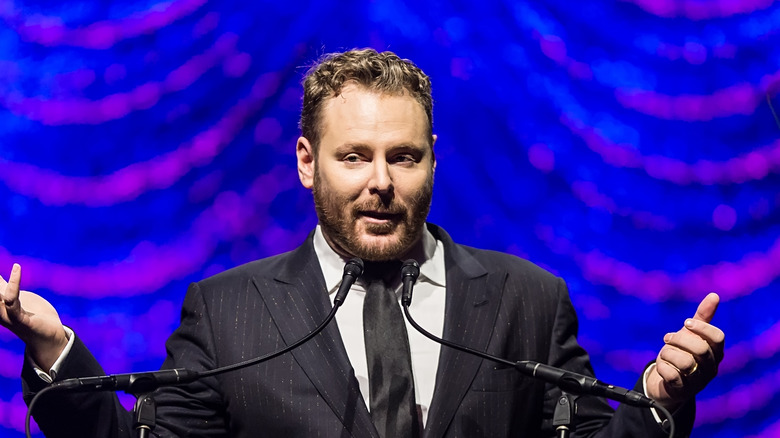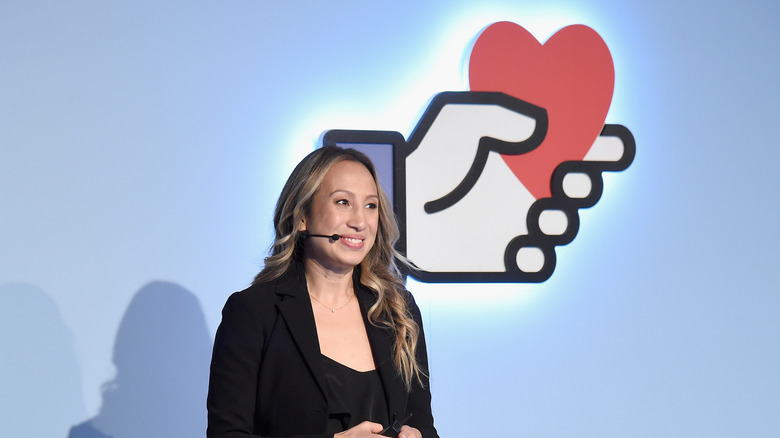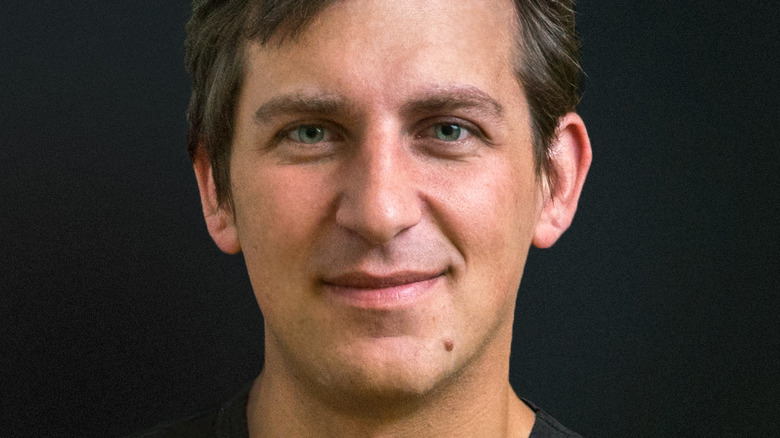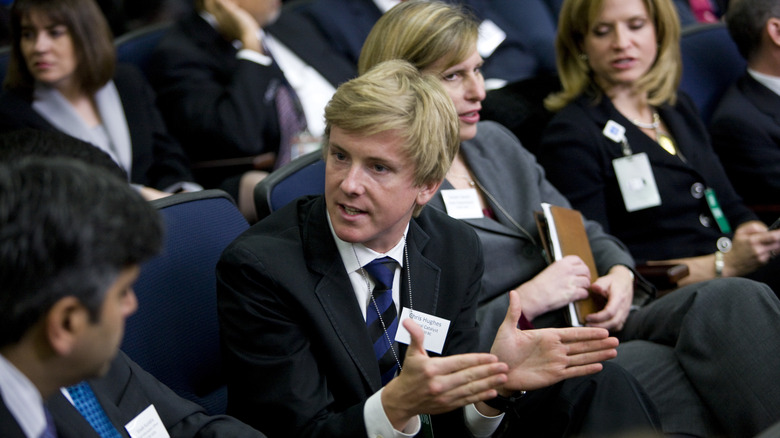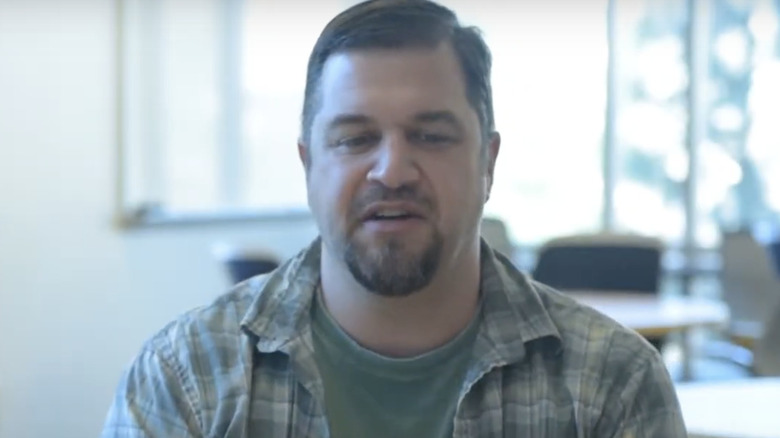Where Facebook's First Employees Are Today
Facebook was launched in 2004, and the site has since grown to include more than 2 billion active daily users. The story of the site's founding was even chronicled in the 2010 film "The Social Network," which starred Jesse Eisenberg as Mark Zuckerberg and Andrew Garfield as company co-founder Eduardo Saverin. The movie tells how the two Harvard classmates were challenged by fellow students Cameron and Tyler Winklevoss as to who actually came up with the idea for Facebook; Zuckerberg ultimately settled with the Winklevoss twins for $65 million.
Zuckerberg is still with the company as its CEO, and his $106.2 billion net worth makes him the eighth richest person in the world, according to Forbes India. His consistent tenure with the company makes him an outlier; the overwhelming majority of Facebook's pioneering employees have moved on to other ventures, including Saverin, who left Facebook in 2005 and later sued Zuckerberg for watering down his ownership stake. Saverin's 2% interest in Facebook is worth $9 billion at this point; he now lives in Singapore with his wife, Elaine Andriejanssen.
Dustin Moskovitz
Dustin Moskovitz was Zuckerberg's roommate at Harvard and dropped out along with his roommate to become Facebook's chief technical officer. He stayed with the company until 2009 and has since co-founded the project management software company Asana with Justin Rosenstein, and a philanthropic organization called Good Ventures with his wife, Cari Tuna.
Moskovitz and Rosenstein have eschewed Facebook's legendary "move fast and break things" ethos for a more deliberate way of operating. Moskovitz told Forbes he tries to model Asana's corporate structure to reflect the software's emphasis on teamwork. "We want to practice what we preach, figure out what's best and export that," he said.
While he was often short-tempered during his tenure at Facebook, Moskovitz has apparently mellowed with age and in response to the challenges of starting a new enterprise. Now, his current net worth is estimated at $12 billion, a fortune he and Tuna have promised to distribute to those in need as part of the Giving Pledge. In his pledge letter, Moskovitz wrote, "In 2004, I had the extraordinary opportunity to help create Facebook, which has grown to connect half a billion people, dramatically increasing communication and transparency worldwide. As a result of Facebook's success, I've earned financial capital beyond my wildest expectations. Today, I view that reward not as personal wealth, but as a tool with which I hope to bring even more benefit to the world."
Sean Parker
Sean Parker got his start in the tech world as a teenage hacker making mischief on an Atari 800, then co-founded Napster with Shawn Fanning before joining Facebook in 2004 as its founding president. The hyper-focused Parker helped transform Facebook from a fledgling dorm project to a legitimate corporate enterprise, but a 2005 arrest for cocaine possession led to his resignation. However, Peter Thiel told Vanity Fair in 2010, "I don't think Sean ever really left Facebook. He's continued to be involved in many ways." After his resignation, Parker invested in Spotify and Asana, helping him build his fortune to its current estimated $2.8 billion.
He has dedicated much of his energy and wealth to charitable causes, including his Parker Foundation, which he established in 2015 with $600 million set aside for science and health initiatives. The following spring, his foundation donated $250 million to fund the Parker Institute for Cancer Immunotherapy in San Francisco. He also founded the Sean N. Parker Center for Allergy & Asthma Research at Stanford in 2014.
Naomi Gleit
Naomi Gleit is a rarity among Facebook originals in that she is still with the company in 2023. She began as a marketing associate and now serves as Facebook's head of product. For years, she held the title of vice president of social good and was tasked with managing the moral track of the social networking behemoth through crises like the Cambridge Analytica scandal. She now has a wider scope of responsibilities, including overseeing the growth, integrity, and impact teams.
"I think we've made mistakes, but I think we've also really learned from our mistakes," Gleit told PBS. "I think we all acknowledge and understand how much of a privilege it is to be such an important part in people's lives."
In her long tenure at Facebook, Gleit has become one of Zuckerberg's most trusted advisers, and she told Maliah West of Sidekick that the shifting sands at Facebook have kept things interesting for her over the years. "This was my first job out of college," Gleit said. "Over time, we've seen so much change in technology, so much change in the company, [and] so much change in priorities. So I feel like, yes, I've been at the same company, but it has been 17 different jobs."
Andrew McCollum
Andrew McCollum was there from the very beginning, coming up with a logo and a graphics scheme for the site in 2004 at Zuckerberg's request despite having little graphic design experience. McCollum hung on with Facebook until the fall of 2006, performing various tasks, including engineering. He joined the venture capital firm Flybridge Capital in 2011 and later became one of the first investors in Philo, a budget video streaming service launched in 2017.
McCollum became Philo's CEO in 2014 and told The Desk he would prioritize funneling some of the company's profits in a direction that he felt would benefit the greater good. "We're continuing our program of donating ad inventory to social justice causes and other philanthropic causes," he said. "We expanded that group to other underprivileged groups, including LGBTQ+ organizations, native and indigenous people groups, the Hispanic Foundation, and a few others. So we're really trying to expand our reach, while still making sure that we're impacting social justice causes."
Chris Hughes
Chris Hughes is one of the few Facebook originals who has steered clear of the tech world since leaving the company. He was one of the social media giant's co-founders and served as Facebook's spokesman. He left in 2007 to help run Barack Obama's highly successful social media departments during his runs for president in 2008 and 2012.
In 2016, Hughes co-founded the Economic Security Project, which aims to provide a universal basic income for all Americans. He is also an executive director at Jumo, a bank that works with people in underserved areas. In 2019, Hughes wrote a bombshell op-ed in the New York Times calling for Facebook to be broken up.
In the column, he chronicled Facebook's recent malfeasance and compared the company to some of the other monopolies in American corporate history, noting, "Because Facebook so dominates social networking, it faces no market-based accountability. This means that every time Facebook messes up, we repeat an exhausting pattern: first outrage, then disappointment and, finally, resignation."
Taner Halicioglu
Taner HaIicioglu was hired away from eBay in the fall of 2004 to become a senior software/operations engineer at Facebook and immediately set to work designing the hardware infrastructure for the rapidly growing enterprise. He stayed with Facebook for about five years before leaving to join Blizzard Entertainment as its lead reliability engineer. In 2013, HaIicioglu went back to his alma mater, UC San Diego, to become a computer science lecturer, and four years later, he made a $75 million donation to the school (the university's largest ever from an alumnus) to fund a new data science center.
"I've seen more and more evidence that start-ups in areas like biotech and software need data scientists," Halicioglu told the San Diego Union-Tribune. "You don't want to wait months to figure things out. You want to get your genome or microbiome sequenced and analyzed, and have the results compared to people who have similar symptoms or results as you so you can act on the information. My biggest emotion at the moment is the surrealness of the fact that I'm in a position to make a gift like this."
